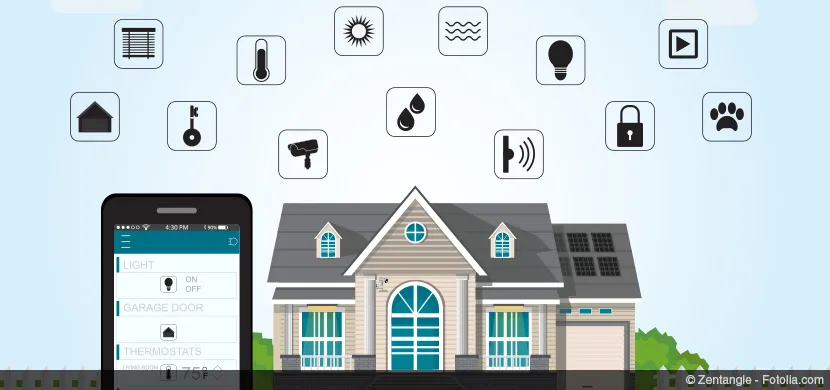The Rise of Smart Homes and Home Automation
In recent years, smart homes have gained popularity and Home Automation has become an integral part of modern living. With the advancement of technology, homeowners now have the ability to control and automate various aspects of their homes with ease and convenience. From voice-activated assistants to security systems, these innovations are not only making our lives easier but also have a significant impact on property values.
In this article, we will explore the latest trends in smart home technology and how they are enhancing property values, providing you with valuable insights for your own home.
The Latest Trends in Smart Home Technology
Smart home technology has come a long way in a short period of time. Today, there are a variety of devices and systems available that can transform any ordinary home into an intelligent, interconnected living space. Let’s look at some of the most popular trends:
Voice-Activated Assistants
Voice-activated assistants like Amazon Echo and Google Home have become a common sight in many households. These devices allow users to control various aspects of their smart homes using simple voice commands. From adjusting the lights to playing music, these assistants make it easy to interact with your home in a hands-free manner.
Smart Security Systems
Security is a major concern for homeowners, and smart security systems offer advanced features that traditional alarm systems cannot match. With features like real-time surveillance, motion detection, and remote monitoring, homeowners can have peace of mind knowing that their home is secure even when they are away. These systems also often include smart locks and doorbell cameras, providing an added layer of convenience and protection.
Energy Efficiency
Smart homes are not only technologically advanced but also more energy-efficient. Smart thermostats, for example, can learn your temperature preferences and adjust accordingly, resulting in energy savings and reduced utility bills. Lighting systems can be automated to turn off when no one is in the room, further reducing energy consumption. These energy-efficient features not only benefit the environment but also make the property more attractive to potential buyers.
Unlock Your Dream Home Today!
Get personalized real estate insights delivered straight to your inbox.
Smart Appliances
From refrigerators to washing machines, appliances are also getting smarter. Smart appliances can be controlled and monitored remotely, allowing users to save time and energy. For example, you can start the washing machine while you’re at work, so it’s ready to be hung out to dry when you get home. This level of convenience is highly desirable for many homeowners, adding value to the property.
Enhancing Property Values with Smart Homes
The integration of smart home technology can significantly increase property values, making it a worthwhile investment. Here are some reasons why smart homes are in demand and how they can enhance property values:
Increased Security
Smart security systems offer superior protection compared to traditional systems. This added layer of security is attractive to potential buyers, especially in a world where safety is a top priority. The peace of mind that comes with a smart security system can make a property more appealing and increase its value.
Convenience and Comfort
Smart homes provide an unprecedented level of convenience and comfort. The ability to control various aspects of your home with a voice command or a smartphone app adds a whole new dimension to everyday living. This convenience factor is highly valued by homeowners, and properties with automated features tend to command higher prices in the market.
Energy Efficiency and Cost Savings
With rising energy costs and increased awareness of environmental sustainability, energy efficiency is a key selling point for properties. Smart homes equipped with energy-saving features can attract environmentally conscious buyers who are looking for ways to reduce their carbon footprint and lower their energy bills. The potential for long-term cost savings is an enticing factor that enhances property values.
Future-Proofing
Investing in smart home technology is a forward-thinking approach that demonstrates a property’s readiness for the future. As technology advances, homes without automation systems may become outdated and less desirable in the real estate market. Future-proofing a property by incorporating smart home features ensures its long-term appeal and market value.
Conclusion
Smart homes and home automation are revolutionizing the way we live and adding significant value to properties. The latest trends in smart home technology, from voice-activated assistants to security systems and energy-efficient appliances, are enhancing property values by providing increased security, convenience, energy efficiency, and future-proofing. As the demand for smart homes continues to grow, homeowners who invest in these technologies are likely to see a positive impact on their property’s market value. So, if you’re considering upgrading your home, smart home technology is definitely worth exploring!
1. Are smart homes more expensive to buy?
Smart homes may have a higher upfront cost due to the installation of smart devices and systems. However, the potential increase in property value and long-term cost savings make it a worthwhile investment.
2. Can I install smart home technology in my existing home?
Yes, smart home technology can be retrofitted into existing homes. Many devices are designed to be easily installed and integrated with different systems, allowing homeowners to upgrade their properties without major renovations.
3. Are smart homes more secure?
Smart homes equipped with advanced security systems provide enhanced security compared to traditional homes. Features like real-time surveillance, remote monitoring, and smart locks offer greater protection against break-ins and other security threats.
4. Can smart home technology save me money on my utility bills?
Yes, smart home technology can help reduce energy consumption and lower utility bills. Energy-efficient devices and automated systems allow for better control and optimization of energy usage, resulting in cost savings over time.
Smart homes may have a higher upfront cost due to the installation of smart devices and systems. However, the potential increase in property value and long-term cost savings make it a worthwhile investment.
Yes, smart home technology can be retrofitted into existing homes. Many devices are designed to be easily installed and integrated with different systems, allowing homeowners to upgrade their properties without major renovations.
Smart homes equipped with advanced security systems provide enhanced security compared to traditional homes. Features like real-time surveillance, remote monitoring, and smart locks offer greater protection against break-ins and other security threats.
Yes, smart home technology can help reduce energy consumption and lower utility bills. Energy-efficient devices and automated systems allow for better control and optimization of energy usage, resulting in cost savings over time.
Popular trends include voice-activated assistants, smart security systems, energy-efficient devices, and smart appliances that offer convenience and enhanced control.
Smart homes enhance property values through increased security, convenience and comfort, energy efficiency, and future-proofing against technological advancements.
Smart appliances can be controlled and monitored remotely, allowing users to save time and energy, which adds convenience and value to the property.
Energy efficiency is important as it reduces utility bills and attracts environmentally conscious buyers, making the property more appealing in the market.
Future-proofing involves incorporating smart home features to ensure a property's long-term appeal and market value as technology continues to advance.
Voice-activated assistants provide hands-free control of various home functions, enhancing convenience and allowing for easy interaction with smart home systems.
DISCLAIMER
The information provided on this website is for general informational purposes only. While we strive to keep the content up-to-date and accurate, we make no representations or warranties of any kind, express or implied, about the completeness, accuracy, reliability, suitability, or availability of the information, products, services, or related graphics contained on this website.
In no event will we be liable for any loss or damage including without limitation, indirect or consequential loss or damage, or any loss or damage whatsoever arising from loss of data or profits arising out of, or in connection with, the use of this website.
Real Estate Investment Risks
Real estate investments involve significant risks and market volatility. Property values, rental rates, and market conditions can fluctuate. Past performance is not indicative of future results.
Before Making Real Estate Decisions
Before making any real estate decision, we strongly advise you to:
- Conduct thorough due diligence
- Consult with qualified legal, financial, and real estate professionals
- Carefully review all relevant documents and contracts
- Consider your personal financial situation and investment goals
This website does not provide legal, financial, or investment advice. All content is for informational purposes only and should not be construed as professional advice or recommendations.
By using this website, you acknowledge and agree to these terms. We reserve the right to modify this disclaimer at any time without notice.







